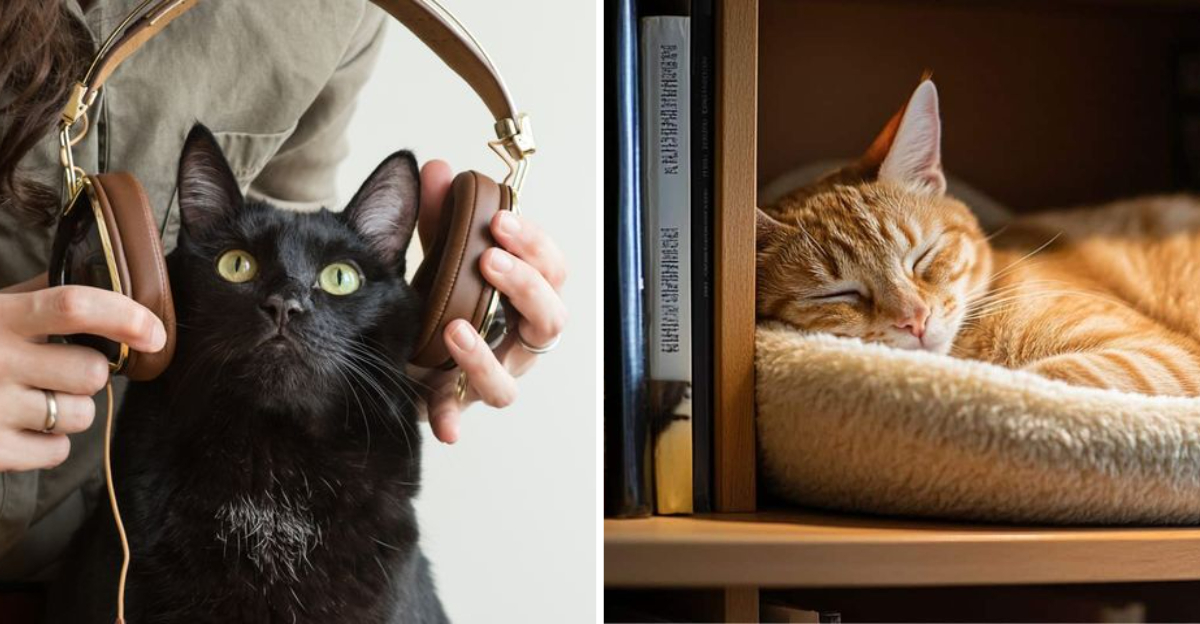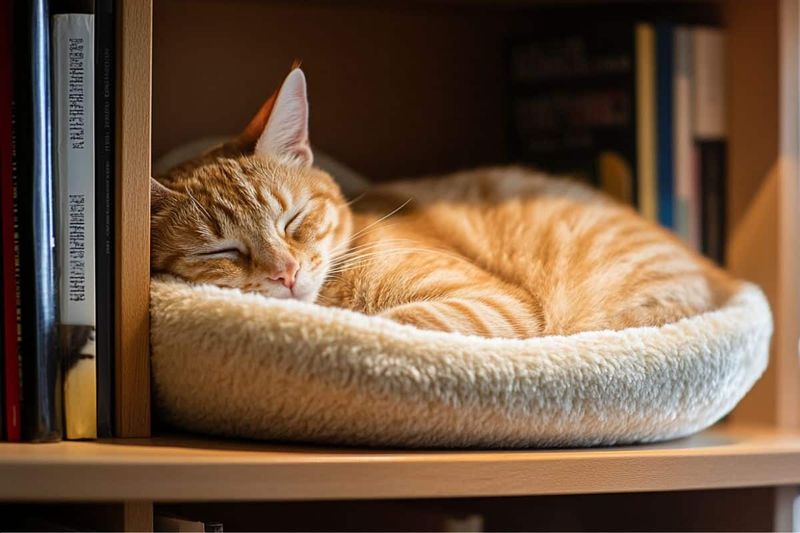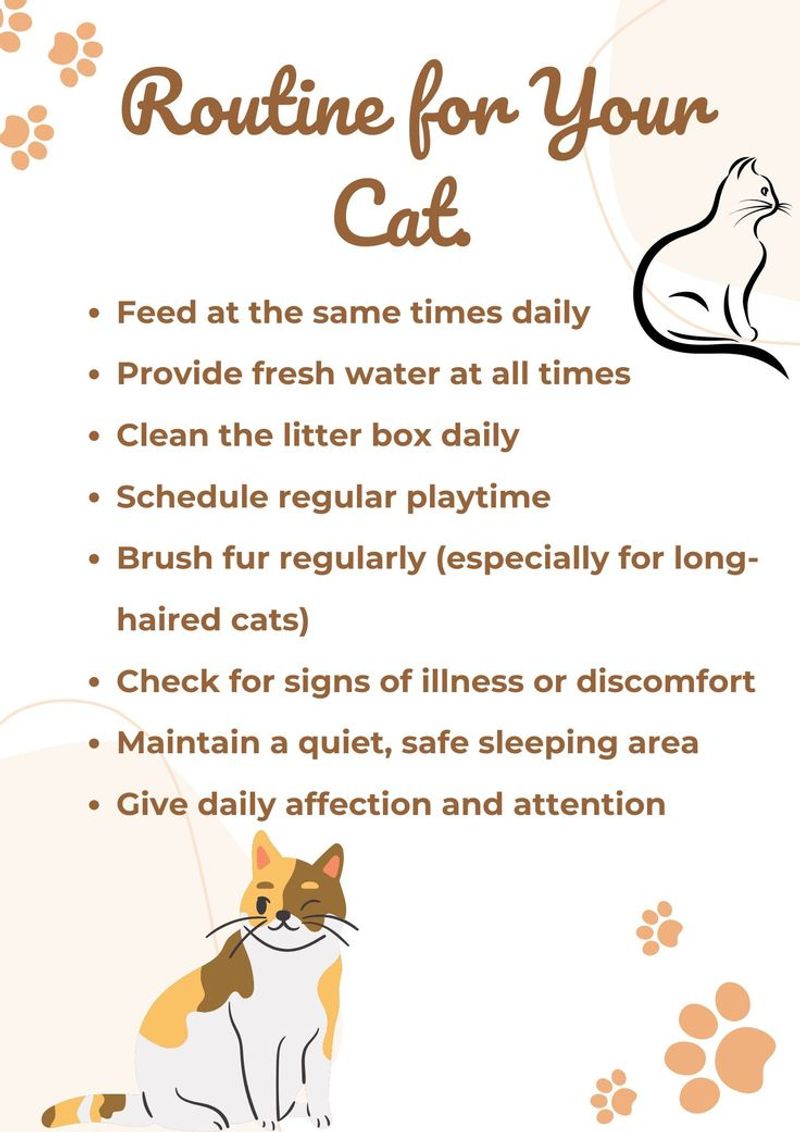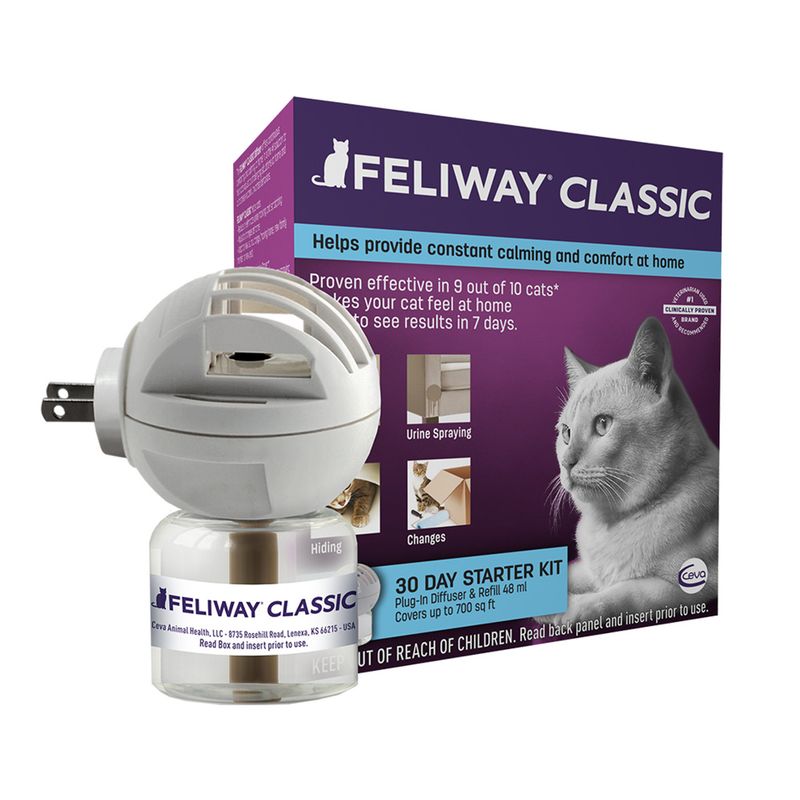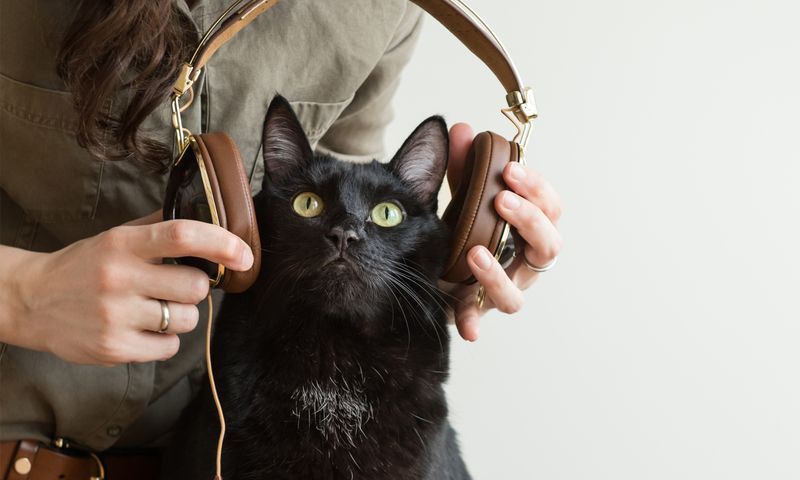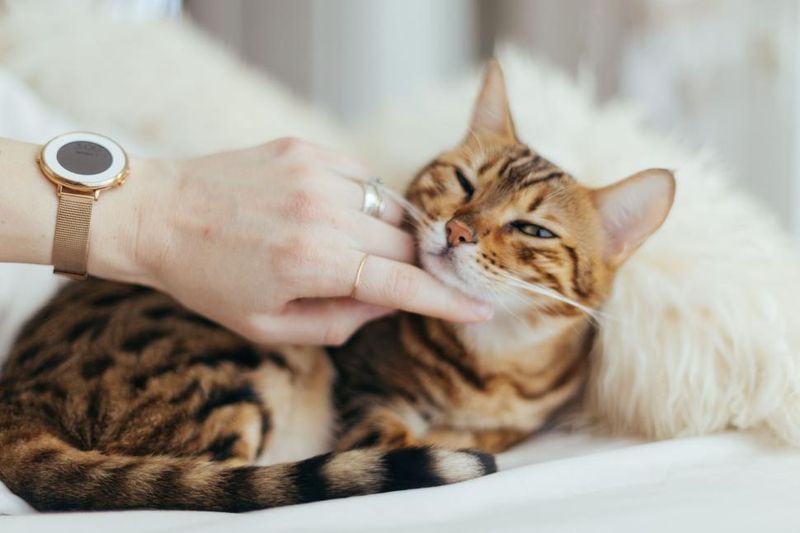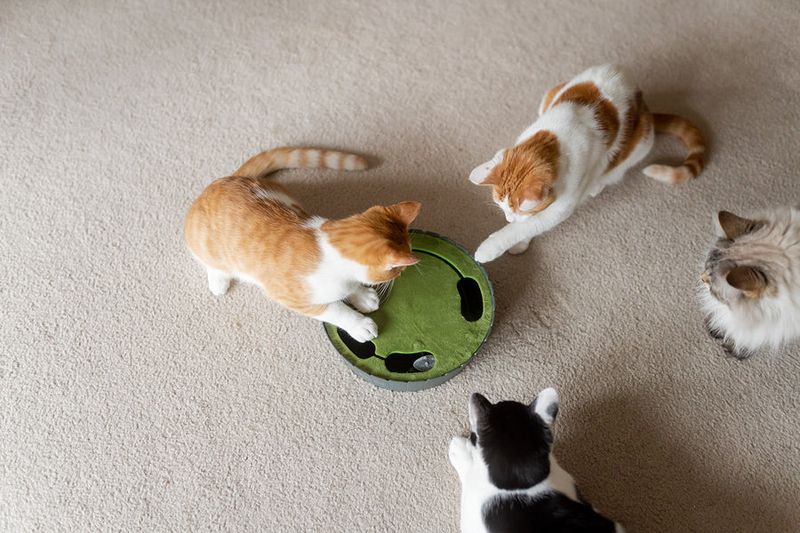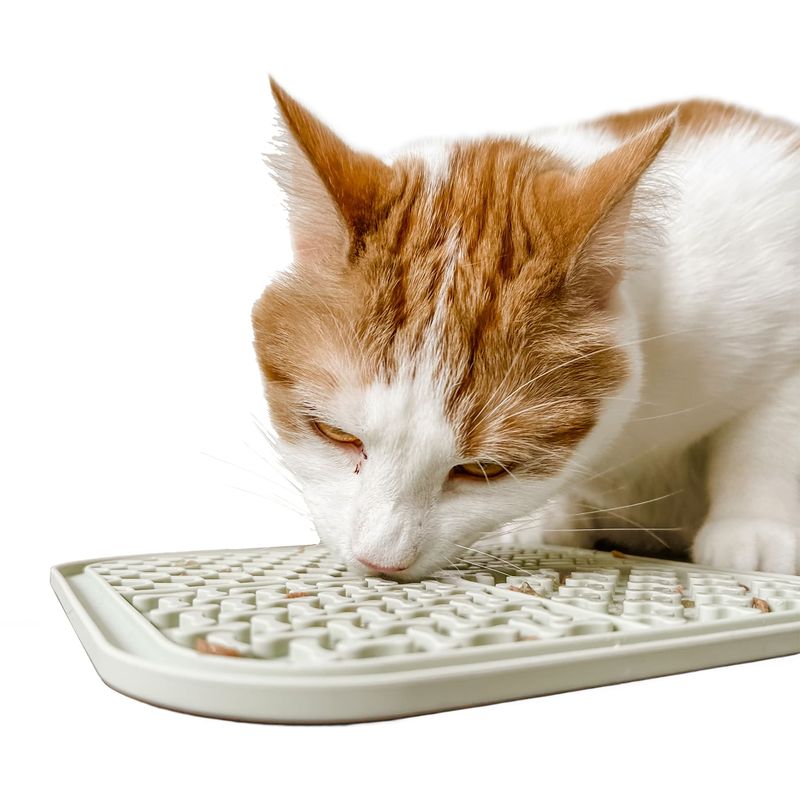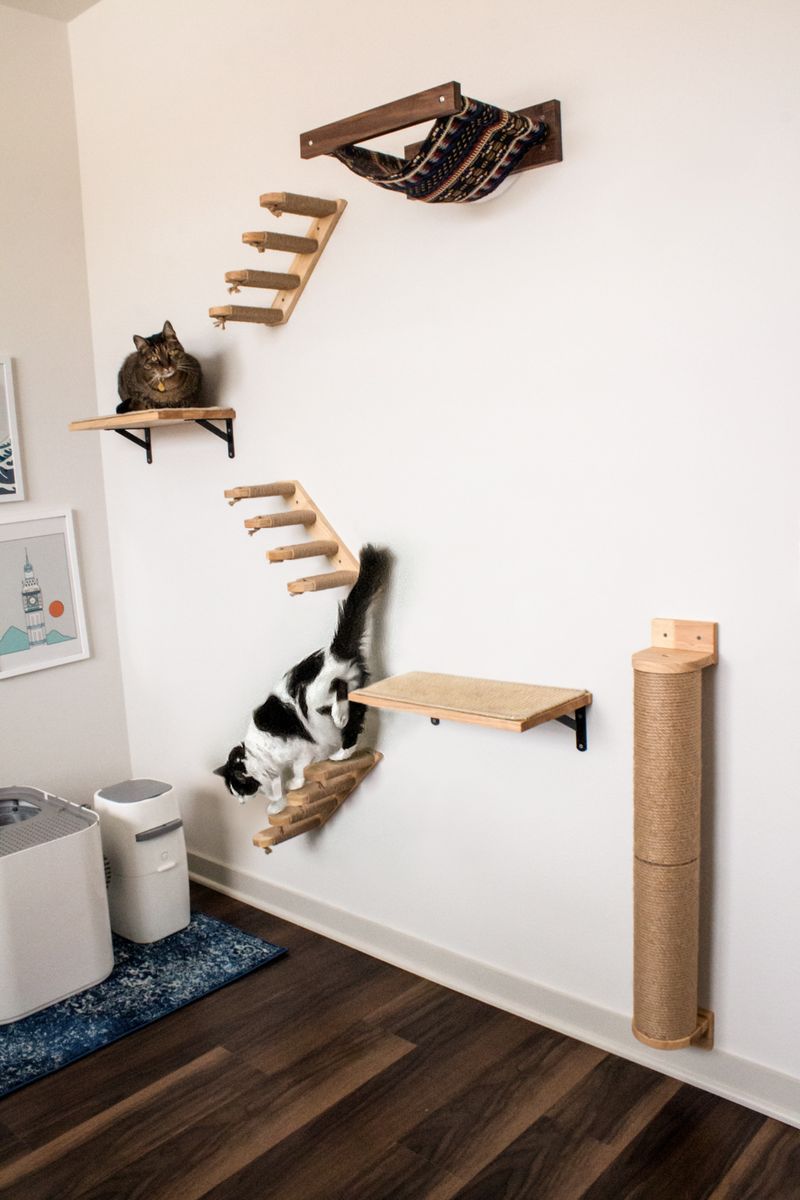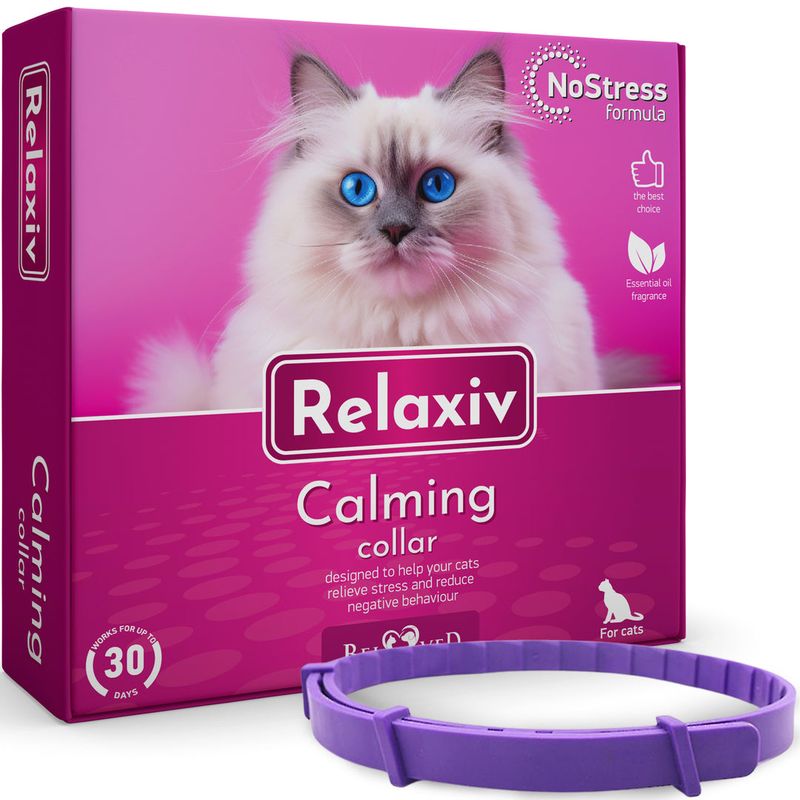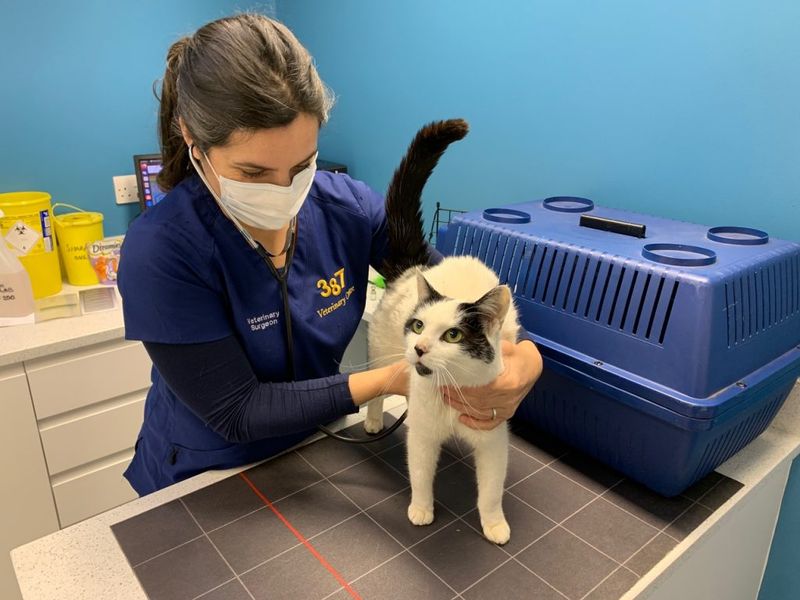📖 Table of Content:
- 1. Create a Safe Space
- 2. Maintain a Consistent Routine
- 3. Use Calming Scents and Pheromones
- 4. Play Calming Music or White Noise
- 5. Offer Gentle Physical Touch
- 6. Provide Enrichment Activities
- 7. Use Herbal Calming Teas
- 8. Offer a Lick Mat or Puzzle Feeder
- 9. Provide Vertical Space
- 10. Use Over-the-Counter Calming Products
- 11. Consult a Veterinarian
Cats may not always show it, but stress can take a serious toll on their well-being. Whether it’s a change in routine, a new pet, loud noises, or a recent move, anxiety in cats often shows up in subtle ways—like hiding, over-grooming, or changes in behavior. This guide offers 11 gentle, effective methods to help calm your cat and restore their sense of safety and comfort.
From creating a soothing environment to using calming scents and routines, each technique is designed to reduce anxiety without overwhelming your feline friend. Perfect for both new and experienced cat owners, these strategies are easy to implement and based on feline behavior science—so you can give your cat the peace of mind they deserve.
1. Create a Safe Space
Cats often feel overwhelmed by loud noises and frequent activity. Creating a peaceful haven where they can retreat and feel secure is essential. This area should be away from high-traffic zones and include familiar items like a favorite blanket or toy. Providing a quiet, comfortable space helps reduce anxiety and gives your cat a sense of belonging. Decorate with soft furnishings and consider using a small tent or covered bed for added security. This personal nook becomes your cat’s sanctuary, allowing them to escape from stressors and recharge in peace.
2. Maintain a Consistent Routine
Predictability is crucial for a cat’s peace of mind. Establishing a consistent routine with regular feeding, play, and rest times can help your cat feel more secure in their environment. This structured schedule reduces unpredictability, which is a common source of stress for cats. By maintaining a predictable daily rhythm, you foster a stable environment that your cat can rely on. Not only does this help in reducing anxiety, but it also strengthens the bond between you and your feline friend, as they learn to trust and anticipate your care.
3. Use Calming Scents and Pheromones
Creating a soothing environment with calming scents and pheromones can ease your cat’s anxiety. Products like Feliway® mimic natural feline pheromones, which signal safety and comfort. These can be dispersed through diffusers or sprays in areas your cat frequents. This method helps establish a calming atmosphere, which can be particularly beneficial during stressful situations such as moves or loud events. Incorporating these scents into your cat’s environment promotes a sense of calm and reassurance, supporting their emotional well-being.
4. Play Calming Music or White Noise
Soft music or white noise can be a simple yet effective way to soothe an anxious cat. These sounds mask disruptive noises and create a tranquil atmosphere. Gentle tunes or nature sounds can help reduce stress, making your cat feel more at ease. This auditory support can be particularly useful during thunderstorms or fireworks. By integrating calming sounds into your cat’s environment, you provide them with an auditory cocoon, helping to stabilize their mood and enhance their comfort.
5. Offer Gentle Physical Touch
Physical affection, when your cat is receptive, can be incredibly comforting. Gentle petting, especially in areas like the head or under the chin, can foster a sense of security and trust. It’s essential to pay attention to your cat’s body language, ensuring that touch is welcome and not overwhelming. This mindful interaction not only soothes but also reinforces the bond between you and your pet. Offering a tender touch at the right moment can be a powerful way to communicate love and support.
6. Provide Enrichment Activities
Interactive toys and puzzle feeders are excellent for keeping a cat mentally stimulated and entertained. These activities not only reduce stress but also prevent boredom, which can lead to anxiety. Regular play sessions can also strengthen your bond with your cat, providing both physical and mental exercise. By introducing a variety of enrichment activities, you offer your cat opportunities to explore and satisfy their natural curiosity, helping to create a more relaxed and happy environment.
7. Use Herbal Calming Teas
Herbal teas like chamomile and valerian root offer natural relaxation for stressed cats. You can steep dried chamomile in hot water, cool it, and add a few drops to your cat’s food or water. However, always consult a veterinarian before introducing new herbs to ensure safety and proper dosage. These natural remedies can provide a gentle calming effect, helping to ease your cat’s anxiety during particularly stressful occasions. This method supports a holistic approach to your cat’s well-being.
8. Offer a Lick Mat or Puzzle Feeder
Licking and foraging behaviors are instinctive in cats and can help them relax and focus. Spreadable treats like plain yogurt or pumpkin puree on a lick mat, or using puzzle feeders, can engage your cat’s senses. These activities not only entertain but also have a calming effect by encouraging natural behaviors. Providing these tools offers both stimulation and soothing properties, contributing to your cat’s overall mental wellness. The act of licking and solving puzzles can serve as a distraction from stressors.
9. Provide Vertical Space
Cats naturally seek elevated spaces where they can observe their surroundings from a safe vantage point. Providing vertical space with cat trees, shelves, or window perches can enhance your cat’s sense of security. These elevated areas allow your cat to retreat and relax, away from any potential disturbances. By offering various heights and perches, you cater to your cat’s innate need to climb and observe, creating a more enriching and comforting home environment.
10. Use Over-the-Counter Calming Products
Over-the-counter calming products, such as pheromone sprays, diffusers, and calming collars, can effectively reduce anxiety in cats. These products mimic natural feline pheromones, promoting a soothing environment. They are particularly useful during stressful events like travel or changes in home dynamics. By incorporating these aids, you help your cat adjust more easily to new situations, providing peace of mind and stability. This method offers a convenient way to support your pet’s emotional health.
11. Consult a Veterinarian
Persistent anxiety in cats may require professional intervention. Consulting a veterinarian ensures that any underlying medical issues are identified and treated. A vet can also offer guidance on behavioral therapies or medication if necessary. Seeking expert advice provides a tailored approach to managing your cat’s stress, ensuring they receive the best care possible. This proactive step can make a significant difference in your cat’s quality of life, offering solutions that are both effective and compassionate.
